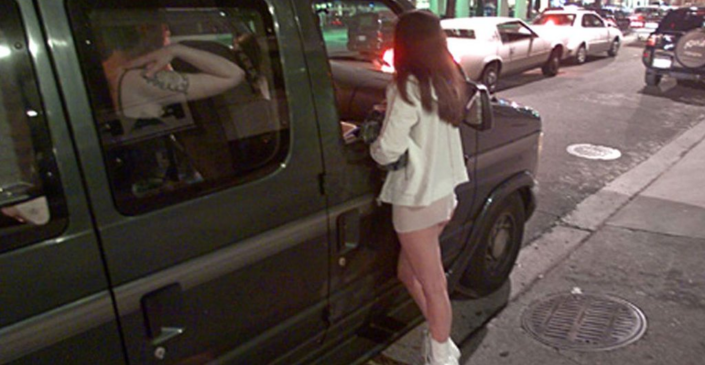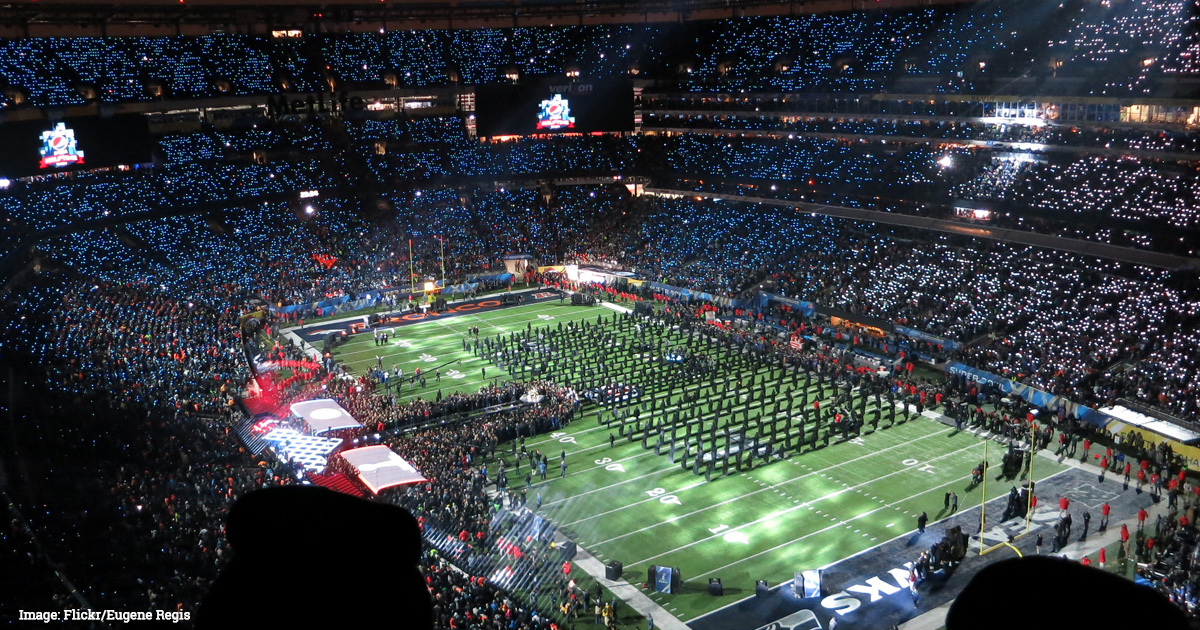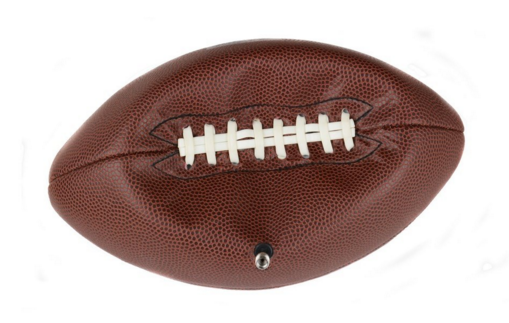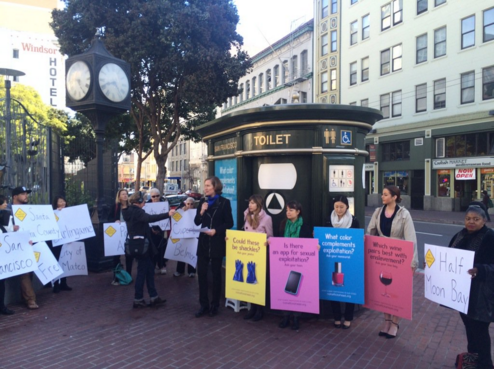The Truth Behind Sex Trafficking at The Superbowl

By:
Ryan Murphy, a practice squad player for the Denver Broncos, was sent home by his team Tuesday after he and his brother were questioned, but not cited, in connection to a prostitution incident. According to reports, police questioned a suspected prostitute, who claimed she had left property in a car belonging to Murphy and his brother.
Murphy was apparently caught up in a sting established by Santa Clara's Human Trafficking Operation Center in conjunction with the start of Super Bowl week to crack down on the perceived scourge of sex trafficking in the surrounding area. twitter/menagpro
twitter/menagpro
Law enforcement thinks sex trafficking at the Super Bowl is a major issue.
Murphy's alleged incident comes amid heated debate over the nature of sex work during major events. For law enforcement officials, the big game is seen as a major hub for human trafficking, but sex worker advocates say the issue is overblown.
In 2014, when MetLife Stadium in New Jersey hosted Super Bowl XLVIII, Rep. Christopher Smith spoke out about anticipated spikes in forced sex work surrounding the event. “We know from the past, any sports venue — especially the Super Bowl — acts as a sex-trafficking magnet,” Smith stated.
Former Texas Attorney General and current Gov. Gregg Abbot called the game "the single largest human trafficking incident in the United States" in 2011.

Presidential hopeful and current New Jersey Gov. Chris Christie has also reaped political benefits from cracking down on sex-trafficking leading up to and during the game.
Not everyone agrees.
But many anti trafficking groups and advocates for sex workers don't buy the link between prostitution and sporting events.
“There is no evidence that large sporting events cause an increase in trafficking for prostitution,” the Global Alliance Against Traffic in Women reported in 2011. The report states law enforcement exaggerates the Super Bowl sex-trafficking link for the following reasons:
• Its usefulness as a fundraising strategy
• As a way to grab the media or the public’s attention
• Being a quick, easy way to ‘do something’ about trafficking
• Its usefulness in justifying social control measures (e.g. [anti-immigration] measures,
crackdowns on sex workers) and cultivating "moral panics"
In a New York Times op-ed, Kate Mogulescu dismisses claims of increased sex-trafficking during the Super Bowl as a myth. "Even with this lack of evidence, the myth has taken hold through sheer force of repetition, playing on desires to rescue trafficking victims and appear tough on crime," she said.
The Problem With The Hype
As Mogulescu points out, inflating the Super Bowl sex-trafficking link doesn't just shed an unsavory light on politicians who make strategic use of it for publicity. It also means that local law enforcement distributes resources unwisely leading up to the game under the guise of combating a non-issue, and even forces trauma victims through the criminal justice system in order to prove a political point.
 Twitter/RichGoeckel
Twitter/RichGoeckel
"As the supervising attorney of a project at the Legal Aid Society that represents nearly all of the people arrested on prostitution charges throughout New York City, I know firsthand the devastating consequences that aggressive arrest practices can have for both trafficked and nontrafficked people engaging in prostitution. Turning them into defendants and pushing them through the criminal justice system contradicts any claim of assistance." - Kate Mogulescu
While local task forces often result in a rise in prostitution arrests, these arrests don't correspond to actual sex trafficking, and blur the line between types of sex crimes that are otherwise distinguished. Salon reports:
In 2011, during the Dallas Super Bowl, 59 people were arrested for crimes relating to prostitution, 46 of whom were locally based sex workers; and only two of those arrests involved trafficking. (Before the big event it was estimated that it would bring in as many as 38,000 trafficked girls.) In 2012, Indiana saw 68 prostitution-related arrests, two of which were confirmed to involve human trafficking. [2013's] game in New Orleans saw the arrest of 85 people, two of whom received trafficking charges.
Sex trafficking is also a big problem in the Bay Area, where this year's Super Bowl will be held.
"The Bay Area is one of the nation’s largest hubs for human trafficking. And the Super Bowl is an event that is a hotbed for human trafficking," Ann Killion writes on SF Chronicle. She alleges that sex work and sex trafficking are hard to monitor in the area because of its multiple airports, sea-ports, and rotation of trade shows and other events.
“High-profile special events which draw large crowds become lucrative opportunities for sex trafficking and criminal activity,” FBI spokesperson Michele Ernst told the paper.
On January 21, the No Traffick Ahead campaign launched in San Francisco with a performance in the city's Tenderloin district. SF Weekly reported that women posed with neighborhood-specific signs displaying anti-trafficking messages and described the campaign as sleek, misinformed, and "an auspicious kickoff given the neighborhood's bawling sirens and roving side-eye."
 Twitter/BaatcDotOrg
Twitter/BaatcDotOrg
No Traffick Ahead is also running ads on buses, billboards, and shelters across the city. Unlike previous task forces, this year's efforts involve the FBI cooperating with local non-profits.
Director of the Bay Area Sex Worker Advocacy Network Carol Leigh believes the slick campaigns and photo-ops mask the issue of sex trafficking and how economic inequality factors into the problem.
"Trafficking is discussed in many ways, most of which are misleading and confusing," she said. "What we really need to raise awareness about is how anti-trafficking policies adversely affect migrants, sex workers, and young people."
